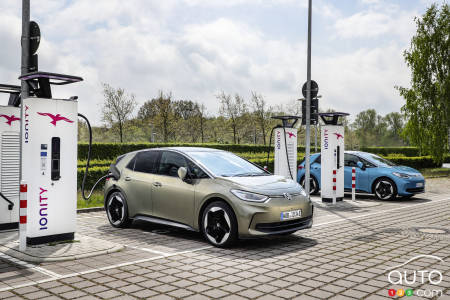German auto giant Volkswagen is planning a major restructuring on its home turf. That will entail three plant closures in Germany, as well as layoffs that could run into the tens of thousands.
Faced with lagging sales and anemic revenue, the automaker is under pressure to reduce costs and remain competitive in a crowded and challenging European market, this as demand drops in China as well.
The company plans to start selling off assets fairly soon. It has not specified which plants are scheduled to be shut down, nor how many employees it plans to lay off out of the roughly 300,000 currently on its payroll in Germany.

Different agendas, different solutions
Not surprisingly, this news – which was known to be coming – is leading to serious tensions between VW management and its employees. While the two sides agree on the over-arching causes of the downturn – slowing demand for EVs, Chinese competition, a sluggish German economy – the proposed solutions diverge greatly depending on which side of the management-worker fence you’re on.
Management favours drastic cost-cutting, with plant closures and mass layoffs, in order to preserve short-term profitability. The unions, for their part, advocate a more social approach, stressing the need to preserve jobs and invest in employee training to adapt to the new challenges of the automotive industry.
VW not alone
Other German automakers are facing the same challenges, with Mercedes-Benz notably announcing it will intensify cost-cutting measures. Volkswagen-owned Porsche plans to cut back on the number of dealerships it has in China and implement its own cost-cutting measures.
The restructuring announced by Volkswagen reflects the difficulties faced by the German automotive industry in the face of Chinese competition and the transition to electric vehicles. While cost-cutting is a necessity to preserve the company's competitiveness, the resulting social tensions raise crucial questions about the future of employment in the sector.





